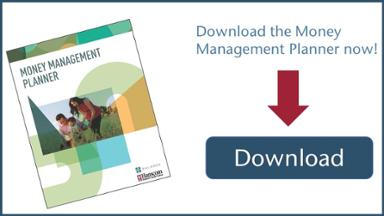It’s spring, the time of year when flowers are blooming, the weather is warming up — and thousands of military members and their families are preparing to PCS to a new duty station. As soon as those orders drop the search for a home begins, faster than you can type “ahrn.com” (the Department of Defense-sponsored housing referral site) into an Internet browser.
With that home search comes the ubiquitous question: rent or buy? While it’s true that home ownership is the main path to wealth for most Americans, and that home equity represents more than four-fifths of the typical person’s wealth, there is a time and place for everything. For young military families, buying real estate may not make sense. A better plan might be to rent while saving for a future home purchase.
Before applying for a mortgage, consider why certain home buying truisms may not always be valid for the unique situation of military life.
1. Interest rates are near historic lows! Spend any time perusing the business news and it appears that there is a sale on mortgages. Yes, rates are incredibly low and this cheap credit is a good incentive to buy. However, a mortgage is just one part of the cost of buying a home. Consider also the down payment, closing costs, and any immediate move-in costs (painting, appliances, new furniture…) and it becomes quickly apparent that a home buyer also needs to have some cash on hand to make the purchase happen – often in the range of $10,000 to $20,000, depending on the cost of the house.
2. A house is a great investment. Yes, it can be, however, when you add up the total cost of home ownership – the interest paid on a mortgage, the necessary maintenance and improvement, the insurance costs – and the numbers might indicate otherwise. Especially when most military members don’t stay in one place long enough to pay off the mortgage, and the costs of selling the house in a few years’ time will likely eat away at any equity that is accumulated.
3. My monthly mortgage payment would be less than what landlords are charging for rent. Stop and do the math. A quick calculation of the mortgage payment doesn’t tell the whole story. That number includes only the amount paid on the principal of the loan and the interest. A house payment is defined as PITI – Principal, Interest, Taxes and Insurance. What are property taxes for that home? What will home owner’s insurance cost? And for a traditional mortgage, expect to pay PMI (Private Mortgage Insurance) if the down payment is less than 20 percent. If you use a VA loan, you won’t pay PMI, but you will have a funding fee. Add these things up, along with possible maintenance costs (usual estimates are 3 to 5 percent of the value of the home) and the total will be a little closer to the true costs. Remember that with a rental, when the furnace goes out or a tree falls on the fence, the repair expenses are covered by the landlord instead of you.
4. Bring on the handyman’s special. Watching home improvement shows on TV might spark some interest in a new hobby that involves paint, demolition or power tools, but be realistic. What will that cost? Will the new assignment bring with it deployments, TDY’s or just long hours at work? Home maintenance can be quite time consuming, and taking on additional improvement projects might be difficult. And what if short notice orders drop right after gutting the kitchen?
5. We’ll just sell when we PCS again. This reason causes probably the most difficult financial challenge for any military family. What if the house doesn’t sell? Is there room in the budget for two house payments? Is being a landlord – even from hundreds of miles away – something that is appealing?
According the latest Gallup research, homeownership is still the goal of most Americans; however it may not be wise for service members and their families to just jump into it without weighing all the implications. Homeownership is a fantastic wealth-building opportunity and most likely will be a financial goal at some point for a military family, but service members should perhaps consider the strategy of saving automatically for their eventual home purchase, especially if all their active-duty years as are spent as renters.
Download our Build-A-Budget ebook to get lots of tips and tools to help with your household budget.




.jpg)









Comment